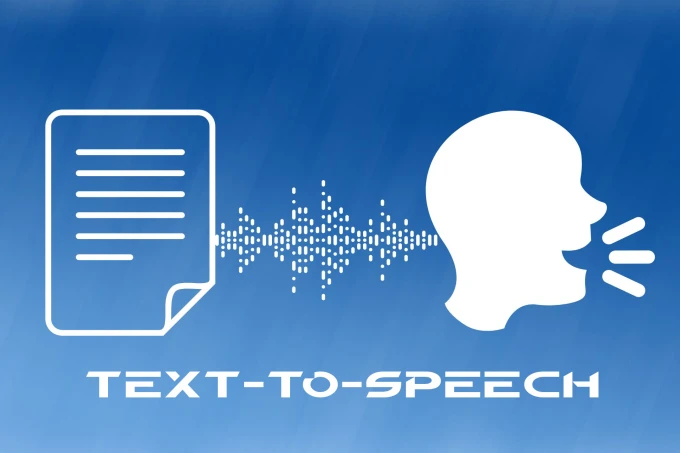Using artificial intelligence, text to speech (TTS) APIs offer a fast and easy way to generate natural, humanlike audio from written text. These applications enable individuals, developers, and businesses to convert written text into human audio within minutes, increasing efficiency and productivity. Several text-to-speech API applications are available, and it may be challenging to identify which is best for you.
This article draws out five of the best TTS APIs in 2024 for accurate mimicry of the human voice and customisation features.
What is Text-to-Speech?
Text-to-speech, or speech synthesis, converts written text into spoken humanlike audio. TTS APIs offer a quick and efficient way to translate text into lifelike audio using deep learning and artificial intelligence. They take written text in various formats and transform it into synthesised speech stored and saved in audio formats like MP3 and WAV.
The Top 5 Best Text-to-Speech APIs in 2024
Here are the top five APIs for text-to-speech:
1. iFLYTEK TTS
iFLYTEK has a leading text to speech API for converting written text into humanlike speech in different languages. iFLYTEK offers leading text to speech API that supports 14 languages, providing broad use cases. It also offers several customisations, helping businesses and developers get text-to-speech services tailored to their needs.
Key Features
- Adjusting Speed, Intonation, and Volume: iFLYTEK TTS allows you to adjust the speed, intonation, and volume.
- Customisable Parameters: It allows you to change parameters like the timbre of your audio to fit complex scenarios.
- Custom Voice Model: Train a custom voice model with your audio recording to create a unique voice that aligns with your brand.
Pros
- Natural voice
- Multi-language and dialect support
- Many customization options
- Easy-to-usetext to speech API.
Cons
- Voice model training is currently only available in Chinese Mandarin.
2. ElevenLabs
ElevenLabs is an AI text to speech API that uses neural network models to convert text into human speech. This API supports 29 languages. You can also customise or generate your accent. ElevenLabs enables you to convert text to natural-sounding quality speech, which it sends as an ArrayBuffer that you can convert to MP3.
Key Features
- Intelligent AI Speech Synthesis: It offers lifelike, context-aware speech synthesis. ElevenLabs TTS identifies text nuances and creates synthetic, human voices with accurate intonation and resonance.
- Diverse and Dynamic Voices: ElevenLabs has a vast collection of synthetic human voices designed for depth and authenticity. It offers a broad spectrum of emotional inflexions to suit every narrative. You can also develop your own voice for unique results.
- Precision Voice Tuning: It allows you to tweak the audio result by refining it for clarity and stability to fit your content’s tone or using exaggerated voice styles.
Pros
- Natural sounding voices
- User-friendly API
- Customisable voices
Cons
- Complex for basic users
- Limited control
3. AWS: Amazon Polly
Amazon Polly is an Amazon web TTS service that uses deep learning technologies to convert text to natural-sounding human speech. It also allows you to customise your speech output. You can store and share the generated audio in MP3 and other standard formats. This text-to-speech API will enable businesses and individuals to translate text into natural voices across several languages.
Key Features
- Simple-to-Use API:It is user-friendly, allowing you to integrate speech synthesis into any application quickly. When you input your text, it immediately returns an audio file you can stream and store in standard formats like MP3.
- Synchronise Speech: Amazon Polly makes it easy to get additional information on the text that will help create more synchronised audio that enhances visual experiences in animations or karaoke-style audio.
- Adjust Speaking Style, Speech Rate, Pitch, and Loudness: It supports Speech Synthesis Markup Language (SSML), a W3C standard, XML-based markup language, and supports common SSML tags for phrasing, emphasis, and intonation.
Pros
- High-quality voice output
- User-friendly
- Flexibility
- Offers several languages and accents
- Seamless integration
- Unique features like Newscaster speaking style.
Cons
- Difficulty in customising voices
- Limited voice customisation options
- No emotional variety in voices
- Little control over the pronunciation
- The Newscaster speaking style is only available in a few languages.
4. IBM Watson
IBM Watson TTS service provides realistic text-to-audio conversion in multiple languages within Watsonx Assistant or other applications. You can customise phonetic translations and create branded voices to fit your brand or business. IBM Watson AI text-to-speech API supports 19 languages and allows you to download them in MP3 or WAV format.
Key Features
- Natural-sounding Neural Voices: IBM Watson uses a deep neural network trained on human speech to produce natural-sounding audio automatically.
- Custom Voices: This premium feature allows you to create customised branded voices modelled after your chosen speaker in about an hour of recording.
- Controllable Speech Attributes: Its speech synthesis markup language allows you to easily adjust pronunciation, volume, pitch, speed, and other attributes.
- Customised Word Pronunciations and Tone: With the help of IPA or IBM SPR, you can clarify the pronunciation of unusual words. You can also control the tone of voice by choosing a speech tone.
Pros
- Multilanguage support
- Compatibility with various audio formats
- Speaker diarization
- Real-time diagnostics
- Integration with Watson Assistant
- Wide range of customisation features
Cons
- No sentimental analysis
- It is not very user-friendly
- Seldom word mispronouncement
5. Microsoft Azure TTS
Microsoft Azure text to speech API is Microsoft’s TTS API, which provides synthesized voices using neural networks. It creates human-like audio that integrates intonation and emotion. This allows you to create customized voices that infuse your brand’s identity. It offers an API text to speech free version and a costly premium version.
Key Features
- Customisable Text-talker Voices: You can create a unique customised voice that reflects your brand identity.
- Fine-grained TTS Audio Controls: You can tune voice output to suit your scenario by adjusting rate, pitch, pronunciation, pauses, and more.
- Flexible Deployment: It allows you to run TTS anywhere in the Cloud, on-premises, or at the edge of containers.
- Tailor Speech Output: It supports fine-tuning synthesised speech audio and defining the lexicons, pronunciation, pitch, rate, pauses, and intonation using SSML.
Pros
- Natural-sounding voice output
- Flexible deployment
- Text to Speech avatar
- Customization for style and emotion
Cons
- The paid version is expensive
- Limited language and dialect support
- Complex setup process
Conclusion
When choosing the best API for text-to-speech, you must consider the features it offers, as well as its perks and downsides. This will help you know which to go for. We have curated a list of the five best speech-to-text API applications, including their features, pros, and cons, to help you make an informed decision. Our list includes the text-to-speech API applications, which is free for users. Top on the list is iFLYTEK text-to-speech technology, which offers many advantages for developers and businesses – check out more about their TTS API at https://global.xfyun.cn/products/text-to-speech.



